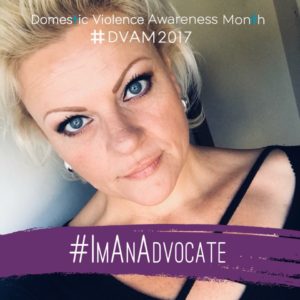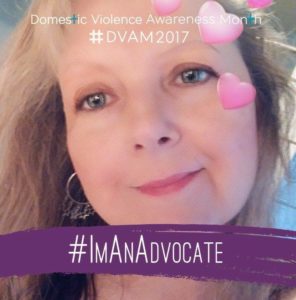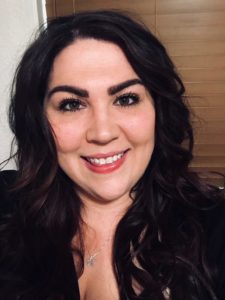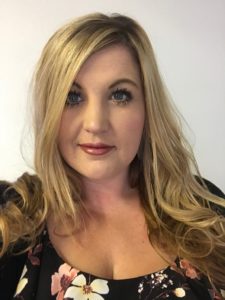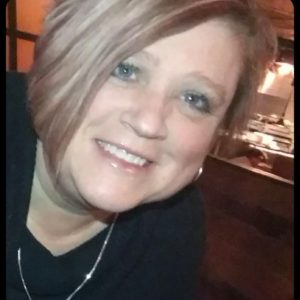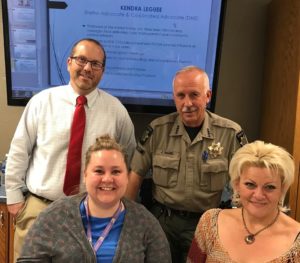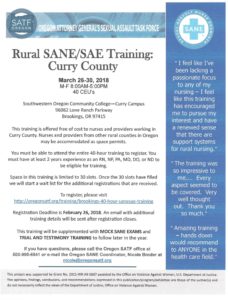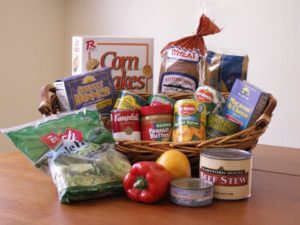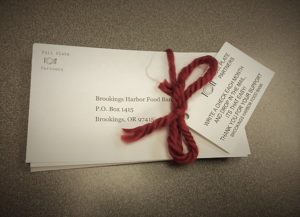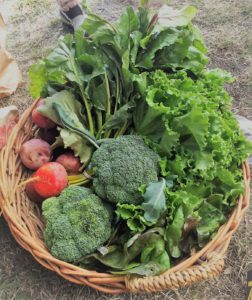Oasis Empowers Victims of Interpersonal Violence with a Collaborative Approach to Community
When asked if they have heard of Oasis Shelter Home Inc., most people in our area would say something like, “Yeah, that’s the women’s shelter, right?”
Well…it IS the women’s shelter; but it’s also so much more!
I’d been hearing some great things about this organization, so I sat down with Mellanie Caldera of Oasis to get the scoop on what they’ve been up to, and how they made it happen.
As it turns out, a collaborative approach to community is at the heart of everything.
Background
(Note: we will refer to interpersonal violence as “IPV” in this article).
Oasis Shelter Home Inc. (Oasis) has been housing victims of IPV since 1995. They are the only emergency IPV program spanning the 150 miles between Coos Bay, Oregon and Crescent City, California. In addition to their shelter, Oasis provides outreach and in-shelter services ranging from children and educational programs, to support with navigating the criminal justice system, to distribution of food and other donated items, and more. Oasis has a thriving transitional housing program that recently was awarded funding to expand to Brookings. They also operate a 24 hour, toll-free crisis “hotline.” (Crisis Line: 541-247-7600, Toll Free Crisis Line: 1-800-447-1167)
The Staff of Oasis
A cadre of passionate individuals work at Oasis, working towards the organization’s mission: “Through shelter, education and advocacy we empower victims of domestic violence, sexual assault and resulting homelessness to achieve a life free from abuse.”
Lea Sevey is the Executive Director and has been with Oasis for 14 years. She uses her Master’s Degree in Human Services to grow and develop the organization and staff on a steady and continuous basis. Lea is a training ambassador for Shared Hope International, the leading nonprofit human trafficking authority in the world, and is also a local expert witness for IPV crimes. Lea is the Board President for the statewide organization – The Oregon Coalition Against Domestic and Sexual Violence, and strategically places her staff on state wide boards with the intention of having the “rural voice” heard throughout Oregon. Mellanie emphasized that she has never worked in an environment more conducive and encouraging to personal and professional growth as in her time working with Lea Sevey and Oasis Shelter Home.
Mellanie Caldera is the Sexual Assault Survivor Advocate/Healthy Relationship Specialist working for Oasis. She supports medical providers, law enforcement, educators, criminal justice system workers, and community action groups with IPV education, and IPV-specific best practices in identifying and responding to domestic violence and sexual assault. She facilitates a weekly support group for IPV survivors. Mellanie is also a Master Trainer for the ACE’s (Adverse Childhood Experience) Study, is part of a cohort of trainers in Coos/Curry County, and is on the ACE’s Steering Committee. She also responds to the crisis line throughout the week, and facilitates clients entering the shelter. Mellanie responds to call outs from dispatch and medical facilities during the week; Olivia, another Oasis team member, responds on the weekends.
Olivia Davis is the Victims Advocate and Community Projects Coordinator, and is housed in the Curry County Courthouse, opposite the District Attorney’s Victim’s Assistance Advocate office. She helps Oasis clients navigate the criminal justice system; she attends court with them and assists them in completing and submitting restraining orders. Olivia works directly with a prosecutor and criminal investigator, both of whom are employed by the Curry County District Attorney and funded through a grant that Oasis received from The Office on Violence Against Women.
The new shelter advocate at Oasis is Gretchen Koenig; she is currently undergoing State Certified Advocacy Training. Cara Koenig is the administrative assistant and she assists the bookkeeper, Natalie Paterson, with financial reports. Sandra Turner is the on-call bilingual advocate; she speaks Spanish and is fully trained as an advocate.
Pictured below, the team at Oasis, from left to right: Mellanie Caldera, Lea Sevey, Gretchen Koenig, Cara Koenig, and Olivia Davis.
Collaboration
A key to Oasis’s progress is that they don’t operate in a silo. They partner and collaborate heavily with other organizations to provide wraparound services for their clients. This collaborative approach makes it possible for Oasis to offer a broad spectrum, multi-resource approach to the family and the community as a whole.
Mellanie explains: “One organization can not offer complete support to a victim of IPV, as much as we want to. As community partners, we recognize this, but through community group meetings, referrals, and presentations on our individual programs, we have created a solid base of community partnership and inter-organizational collaboration that DOES allow us to offer our clients that complete support.”
Here are just a few of the organizations Oasis partners with:
Brookings, Gold Beach and Port Orford Police Departments
Brookings Harbor High School – Anti-bullying education/Domestic Violence education
Curry Community Health
Curry County District Attorney’s office
Curry County Domestic & Sexual Assault Response Team (DSART) to refine processes on how IPV cases are handled locally
Curry County Sheriff’s Office
Curry Health Network
Department of Human Services
Tolowa Dee-ni’ Nation’s Shu’-‘aa-xuu-dvn (In A Good Way Place) Domestic Violence and Sexual Assault Program
Wally’s House, a child abuse intervention center in Gold Beach
Successes
Here are a few stories which illustrate Oasis’ most recent success stories:
SAFE Exams/SANE Training
In 2017 Oasis, the SATF (Sexual Assault Task Force), Curry County District Attorney and Curry Health Network signed an agreement to bring SANE (Sexual Assault Nurse Examiner) training to Curry County and for SAFE (Sexual Assault Forensic Exam) exams to be conducted here for the first time since 2008. Previously, local victims of a sexual assault had to be referred away to either Medford or Crescent City in order to receive the SAFE exam.
Curry General Hospital worked closely with Oasis on their process for facilitating SAFE exams to ensure best care as well as privacy. The first completed SAFE exam occurred in the last quarter of 2017. SANE training is scheduled for March 26-30, 2018, and will be facilitated by Oregon Department of Justice Sexual Assault Task Force and held at the SWOCC Curry Campus in Brookings. (Mellanie will attend the full week of training to host the information and support table, and to provide crisis counseling should any of the participants require it.)
Senate Bill 795
Senate Bill 795 passed the state legislature in the 2017 regular session. It mandated that as of January 1st, 2018, first responders and ER staff must make all reasonable attempts to have an advocate present with a victim of sexual assault at the time and location of presentation.
Oasis will be the first point of contact in our local area; in the event of a sexual assault incident, either Mellanie or one of her colleagues will be called in to stay with the victim and help that person through the investigative process. As Mellanie explains, Oasis is victim-centered and trauma-informed and thus understands the language victims speak. For instance, victims of trauma might not necessarily remember events in chronological order, but that might be how law enforcement is asking their questions. “The advocate can help ease communication between victims and responders,” says Mellanie.
$500,000 Federal Grant to Fund Three New Positions
Oasis was awarded a $500,000 federal grant allowing them funding for 3 positions: a legal advocate, a deputy district attorney and a part-time investigator. Director Lea Sevey applied for this grant in an effort to increase prioritization of cases involving domestic violence, sexual assault, dating violence, stalking and elder abuse within the DA’s Office. (To read about the grant in the Curry Coastal Pilot, click here.)
Working with BHHS & Within Local Shelters
Oasis offered Brookings Harbor High School faculty and staff training for bullying and cyberbullying prevention, and human trafficking education and prevention. Oasis also works with schools to make sure that children living in shelters are able to get to school and daycare and can eat breakfast and lunch (McKinny Vento Act).
How You Can Help Oasis:
When asked what Oasis needs from the community, Mellanie responds, “more opportunities to provide awareness for IPV. IPV is still a topic that gets swept under that rug. People don’t always want to talk about it openly.” Oasis also posts a monthly wish list to their Facebook Page. Right now, they are looking for a volunteer with some handyman skills who can help with general maintenance on a regular basis. The shelter also frequently needs twin-bed-sized bedding, blankets, and pillows.
Resources for Survivor Support:
- Oasis Crisis Line: 541-247-7600
- Toll Free Crisis Line: 1-800-447-116
- Oasis Shelter Home Inc.
- Oasis Shelter Home Inc, Facebook
- Oregon Department of Justice: Crime Victims’ Services
- Futures Without Violence
- Oregon Coalition Against Domestic and Sexual Violence
- ACE Interface
- The National Domestic Violence Hotline
About Wild Rivers Connect:
Wild Rivers Connect provides networking opportunities and resources for nonprofits in Curry and Del Norte Counties. Oasis Shelter Home, Inc. has a listing on the Wild Rivers Connect (WRC) website and regularly attends nonprofit leader networking luncheons. “WRC has, during their regular meetings and luncheons, offered a platform from which to present our programs and update community partners and community members on collaborative programs we are working on as well as the growth and changes within our own programs,” explains Mellanie. If you have questions about how WRC can help your nonprofit organization, please contact us.
Meet Executive Director Lea Sevey and learn more about Oasis in this video

